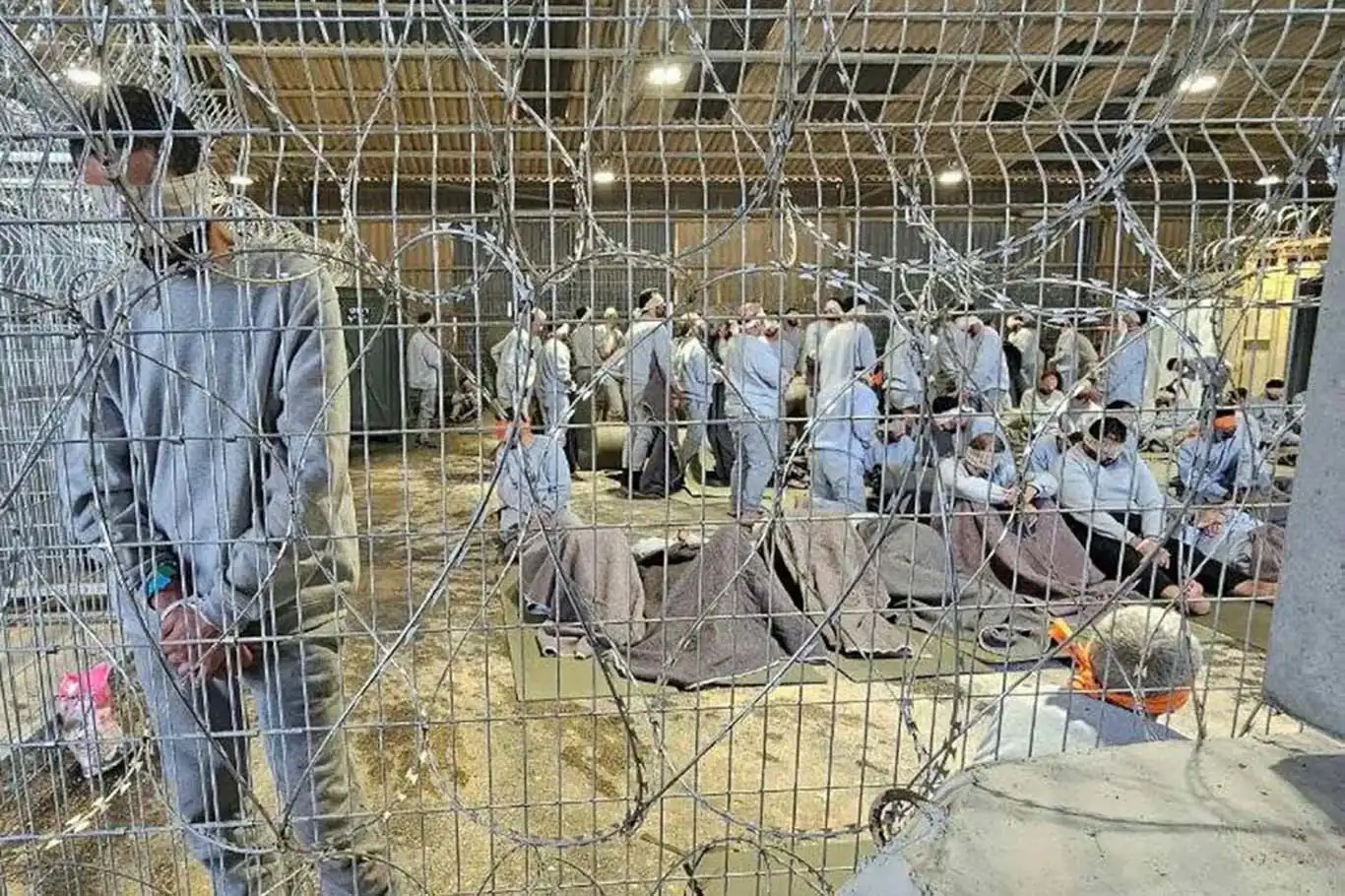Palestinian prisoner exposes horror inside Israel’s Sde Teiman torture camp


A newly released testimony by Palestinian detainee Khaled Barakat has exposed yet another chilling chapter in Israel’s long record of crimes against Palestinian prisoners.
Documented by the Palestinian Center for Prisoners’ Rights, Barakat’s account details 130 days of systematic torture, humiliation, and physical destruction inside the notorious Sde Teiman detention camp—conditions he described as nothing short of “surviving death.”
Barakat’s testimony paints a grim picture of a detention system built on cruelty. From the moment of his arrest, he said, he was kept handcuffed, shackled, and blindfolded, with Israeli forces unleashing police dogs to randomly attack prisoners at any hour of the day.
“We were held in iron cages, 130 detainees to a cage, under constant surveillance,” he said. “The smallest movement meant being beaten, insulted, and degraded.”
Barakat revealed that he and many others suffered broken ribs due to repeated assaults. None of them received medical treatment at any point during their imprisonment, leaving bones to heal incorrectly and pain to become permanent.
Bathroom access—already extremely limited in Israeli prisons—was reduced to a tool of punishment at Sde Teiman. Prisoners were often permitted to relieve themselves once a day, while many were forced to do so while still shackled.
Cameras watched them constantly. A single bucket placed in the yard served as a communal toilet, and guards refused to empty it until it overflowed into the prisoners’ sleeping areas.
Barakat confirmed that the Red Cross never visited to monitor conditions—leaving detainees completely cut off from international oversight.
Brutal torture continued during transfers between facilities. At Ofer Prison, soldiers reportedly dragged prisoners out one by one, beating them with batons and sharp tools.
Barakat recalled the case of a diabetic prisoner whose leg became infected after repeated assaults. The infection developed maggots, and with no medical care provided, the man’s leg was ultimately amputated.
During bus transfers, guards attacked detainees with dogs and electrocuted them using metal handles, turning the journey itself into another session of torture.
Inside Sde Teiman, the administration confiscated prisoners’ mattresses at the height of winter. With no blankets, no warm clothing, and rampant cases of scabies, detainees were left shivering on cold concrete floors—conditions Barakat described as an intentional form of slow torture.
Barakat said that threats did not stop even after prisoners were released. Israeli soldiers repeatedly taunted detainees, saying: “We bombed your homes and killed your families.”
These threats served as psychological warfare meant to terrorize Palestinians and break their spirit, even outside prison walls.
The testimony of Khaled Barakat adds to a growing body of evidence documenting the severe mistreatment, torture, and dehumanization Palestinians face inside Israeli prisons—abuses that violate international humanitarian law and basic human dignity.
His account reinforces long-standing warnings from rights organizations that Israel’s detention system operates with impunity, protected by silence, international inaction, and a deliberate absence of oversight.
As more survivors come forward, the suffering of Palestinian prisoners continues to highlight the urgent need for global accountability and protection for those held at the mercy of Israel’s occupation authorities. (ILKHA)
LEGAL WARNING: All rights of the published news, photos and videos are reserved by İlke Haber Ajansı Basın Yayın San. Trade A.Ş. Under no circumstances can all or part of the news, photos and videos be used without a written contract or subscription.
China has urged its citizens to avoid travelling to Japan, escalating a diplomatic confrontation triggered by comments from Japan’s new prime minister about Tokyo’s potential military response to an attack on Taiwan.
Heavy rainfall on Friday further deepened the humanitarian catastrophe gripping the Gaza Strip, where tens of thousands of displaced Palestinians sought refuge in fragile makeshift tents that collapsed or flooded under severe weather conditions.
President Donald Trump suggested Friday night that he has “sort of made up my mind” regarding potential military action against Venezuela, raising fears in Latin America that Washington may be preparing yet another foreign intervention.